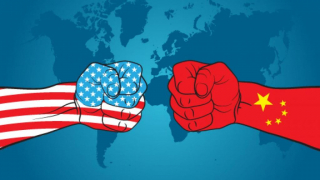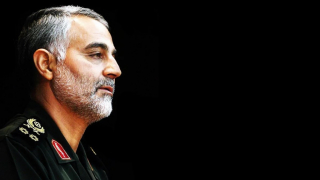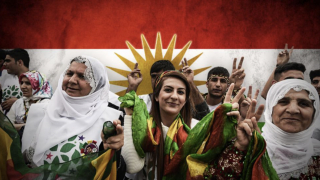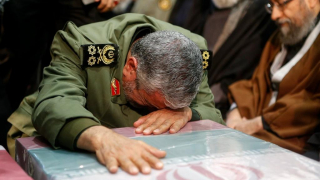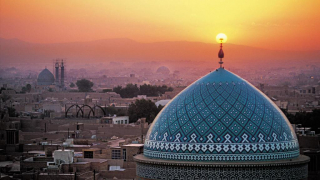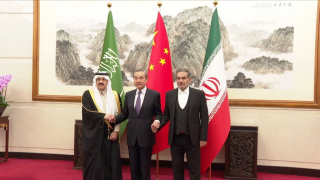Time to Reinstate Iran-Nuclear Deal (JCPOA).
17.07.2020
This July 14 marks the fifth anniversary of the conclusion of the Joint Comprehensive Plan of Action (JCPOA). Five years ago, the P5+1 (China, Russia, France, Germany, the United Kingdom, and the United States), the European Union, and Iran reached the historic JCPOA in Vienna. This important outcome of multilateral diplomacy was then endorsed by UN Security Council Resolution 2231. The JCPOA has become a key element of the international nuclear non-proliferation system, an important positive factor in maintaining regional and global peace and stability, and good practice of resolving regional hotspot issues through multilateral approaches.
Under this agreement, Iran will limit its nuclear program to civilian purposes only, like power generation, agricultural applications, and the healthcare sector, etc. While the economic sanctions imposed on Iran will be removed and Iran may export its oil, and imports of all essential items.
Unfortunately, the US has in recent years been upholding unilateralism, renouncing its international obligations, and withdrawing from treaties and organizations. While Iran was strictly following the treaty and halted its nuclear program. International Atomic Energy Commission, has verified that Iran has nor breached the agreement and no proof of any violation was found. The US Congress has also witnessed that Iran was strictly sticking to the agreement and no single case of violation was found. However, Israeli Prime Minister Netanyahu gave a PowerPoint presentation to President Ronald Trump and persuaded him to dishonor the agreement. Finally, the US withdrew from the JCPOA in May 2018 and thwarted in every means other parties’ implementation of the agreement. Such clear violation of the UNSCR 2231 has led to continued tension over the Iranian nuclear issue. At present, the US attempts to further undermine the JCPOA by pushing for the extension of the Security Council arms embargo against Iran and threatening to activate the rapid reinstatement of sanctions mechanism.
The US action was unjustified, unilateral, and against the norms of Internation practices. Economic sanctions re-imposed on Iran , while Iran was still respecting the agreement. Sanctions have harmed Iran’s economy, shortage of basic necessities of life were witnessed, and the suffering of the public was witnessed.
While all other countries, wanted to respect the agreement, but the US has pressurized its European allies to not respect the agreement, and implement economic sanctions.
China entered with Iran in a strategic agreement and pledged to invest US dollars 400 billion, whereas, Iran will supply Chinese much-needed oil for the next 25 years. China will build a railway network in Iran, connecting Iran with Afghanistan, Turkey, and central Asia. It will be connected to the China-Pakistan Economic Corridor (CPEC). China extends diplomatic and political support to Iran.
China believes that preserving and implementing JCPOA is the right way to resolve the Iranian nuclear issue. Iran's scaling back of compliance is the result of the maximum pressure exerted by the US. Parties to the JCPOA should strengthen dialogue and consultation within the framework of the Joint Commission, seek a solution to the compliance dispute in a step-by-step and reciprocal approach, and restore the balance of rights and obligations under the JCPOA. The parties should support strengthened dialogue and cooperation between the International Atomic Energy Agency (IAEA) and Iran in order to properly resolve the safeguards issue as soon as possible. At the same time, the international community should jointly oppose the US pushing the Security Council to extend or reinstate sanctions against Iran and urge the US to return to the right track of compliance with the JCPOA and UNSCR.
On June 7, State Councilor and Foreign Minister Wang Yi sent a letter to the UN Secretary-General and the rotating president of the UN Security Council, elaborating on China’s position and proposition on the Iranian nuclear issue. He reiterates China’s firm support for the JCPOA.
Sanctions were never effective in the past. History is witness that whenever sanctions were imposed on any country, proved ineffective. Sanctions can ham the common man but can not coerce the state. Alternatively, it tempts Iran to opt for the nuclear option. As, in the past, the US was imposed sanctions on North Korea, and threatened to attack. But once, North Korea, gained nuclear power, the behavior of the US soften to a great extent. The US may never attack a nuclear power.
It is hoped that UNSC, and other European partners along with Russian and China, may come up with a solution based on justice, equality, and keeping the interest of Iran as well as other partners.





